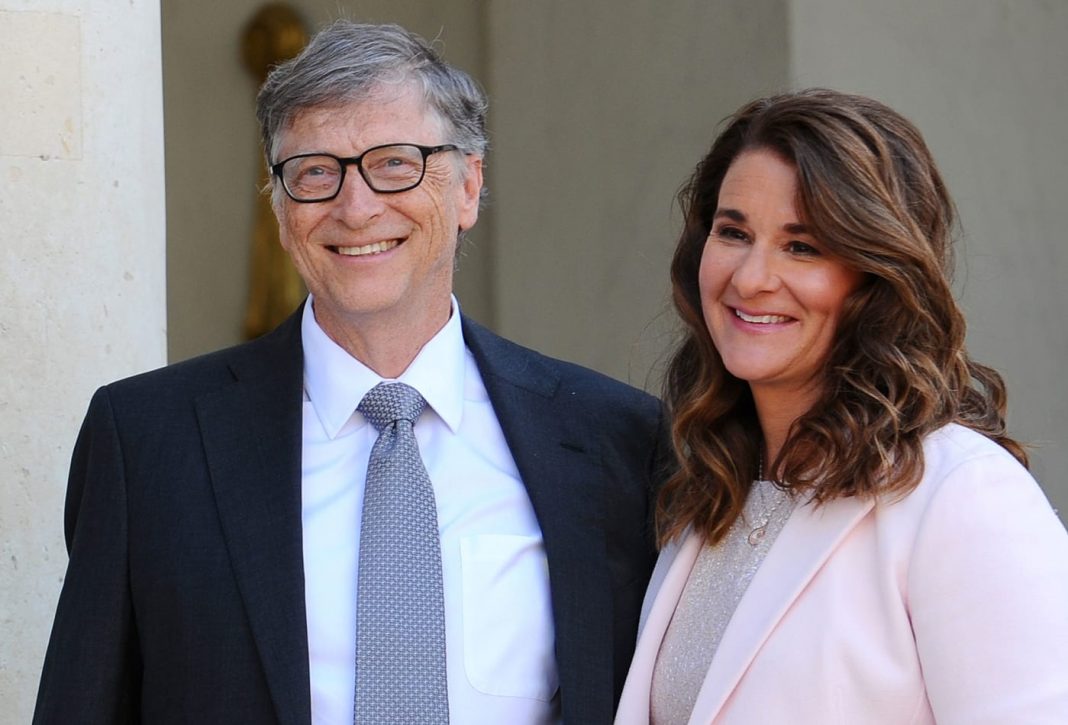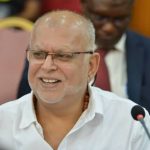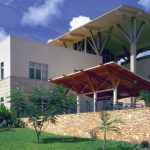Bill and Melinda Gates Foundation has announced that it is working with Africa Centre for Disease Controls to strengthen capacity and research in the wake of #COVID-19
In a statement sent to Eagle Online, the foundation says given the weak health systems across Africa, there is need to build capacity among those systems so as to help in the fight against infectious diseases.
“We’ve also assisted in scaling up local disease surveillance and testing in the past several weeks. At the start of the year, for instance, only two countries in sub-Saharan Africa had the ability to test for #COVID-19. In early February, the Africa Centers for Disease Control and Prevention started training health workers for how to test for the virus. Our organization was very proud to support that work, and now 40 of 54 African nations have the capacity to analyze #COVID tests”.
Below is the statement
Our Approach to #COVID-19 in Africa
Since the virus emerged late last year, #COVID-19 has largely been a disease of the Global North. Its worst and deadliest effects have been felt in Europe, East Asia, and North America. But that is likely to change. As the pandemic reaches its peak and begins to slow in these places, epidemiological models suggest it will accelerate in developing nations—including those in sub-Saharan Africa.
There is much we still don’t know about #COVID-19, but we can be sure of this: the African experience with the disease will be different than anything we’ve seen so far.
The continent’s health systems are less well-equipped than others, for instance. Data suggest that even a single Manhattan hospital has more intensive care beds than most African countries.
When I joined the Bill & Melinda Gates Foundation last year as its Africa Director, I never imagined that the continent would be dealing with a situation of this magnitude, and I salute the continent’s leaders for adopting measures to prevent the virus’ rapid spread amongst their populations.
I also stand ready to help. The entire Gates Foundation does. And, in fact, we are already working with our African partners to accomplish four goals during this pandemic:
protect the most vulnerable; accelerate detection and containment of the virus; develop treatments and a vaccine; and minimize societal and economic impact.
That’s how we think of our work inside the foundation – as being divided among those four categories – but the easiest way to understand what we’re doing might be just to split our work into two rough areas: the immediate response, and longer-term efforts.
The first area is where the bulk of our work has been focused since the outbreak. We’ve helped stand up Emergency Operations Centers (EOCs), for example, and have been working with partners like the World Bank Group and the World Health Organization Regional Office for Africa.
We know physical distancing measures are necessary to slow the spread of #COVID-19, but we also know that those distancing measures – as they were applied in the United States and Western Europe – might not work in the African context. Many more people on the continent face a terrible choice – stay home or feed their children. We know that genuine community engagement might help overcome this obstacle, and we’re working with our partners to support the effort.
We’ve also assisted in scaling up local disease surveillance and testing in the past several weeks. At the start of the year, for instance, only two countries in sub-Saharan Africa had the ability to test for #COVID-19. In early February, the Africa Centers for Disease Control and Prevention started training health workers for how to test for the virus. Our organization was very proud to support that work, and now 40 of 54 African nations have the capacity to analyze #COVID tests.
These steps are vitally important but even as we work to tackle this emergency, we are also taking a longer-term view. Starting this week, the foundation is devoting some resources to answer questions like: How will we make sure the pandemic doesn’t erase the progress that the continent has made fighting poverty and other diseases? And what can Africa do to emerge from this crisis better prepared for others in the future?
No one has all the answers to these questions yet. But our partners do have some. The 2014 West African Ebola outbreak, for example, taught us that during an epidemic most deaths aren’t caused by the infectious disease itself but by lapses in routine care. Children die because they don’t receive the standard immunizations, and people of all ages suffer because they don’t get medicines for diseases like HIV, malaria, or TB. So, now we’re supporting ways to ensure that care continues even in the midst of the #COVID-19 crisis.
We’re also investing in long-term R&D like the efforts of national laboratory services to validate new testing methods. This will help us detect novel diseases down the road.
Ultimately, the short-term and long-term components of our strategy go hand-in-hand, and elements of an emergency response can be useful long after the crisis has passed. For example, we’re working very hard to help stabilize the market for medical supplies that #COVID-19 patients need like oxygen. In the future, those same oxygen systems will also save the lives of newborns and other people who need them.
Expanded testing capacity for #COVID-19 can be applied to fight other diseases too, and our foundation is working with the Africa CDC, as well as other regional centers and national public health institutes, to strengthen that infrastructure.
The private sector has also quickly mobilized to fight this virus, and the capabilities they’re developing will help later too. Many companies are figuring out new ways to finance and distribute food and drugs. Others are innovating in the health space, making advances in telemedicine. This work will bear fruit now, as well as later, and our foundation is committed to continuing our work with the private sector.
In the end, our approach to fighting #COVID-19 in Africa is the same as our approach to the all the foundation’s past work there: it’s about reducing inequality.
Pandemics have a way of magnifying inequalities. Look at gender, for instance. Women account for the majority of the health care workforce which means they’re more exposed to the disease. At the same time, less attention is usually paid to their health, and areas like family planning and maternal care are typically the first to be cut during an economic downturn, meaning that women and girls who manage to navigate #COVID-19 and its financial consequences may still face restrictions to basic care.
There are also inequalities between nations, not just within them. We’re seeing these inequalities play out now in international bidding wars for PPE. Often, a shipment of masks or ventilators is going to whomever can pay the most. This should not happen. We must make sure that all supplies – especially an eventual #COVID-19 vaccine – go to the areas of greatest medical need, and not the ones of greatest economic power. (We’re fortunate that there are organizations like Gavi, which has 20 years of experience making sure that children in low-income communities get new vaccines at the same time children in high-income countries do.)
Our partners and frontline workers across the African continent are performing extraordinary feats, but a global pandemic requires a global response, and the responsibility for action must rest with us all.
This pandemic has shown what our partners in Africa have always known: our global health is only as strong as our most vulnerable community. We can defeat this virus, but it will require us to fight it fairly. Not just with the needs of the most powerful in mind, but with the needs of all people, especially those in Africa.
Cheikh Oumar Seydi is the Africa Director for the Bill & Melinda Gates Foundation.
FOR IMMEDIATE RELEASE:
Bill & Melinda Gates Foundation Expands Commitment to Global COVID-19 Response,
Calls for International Collaboration to Protect People Everywhere from the Virus
Additional funding brings foundation commitment to more than
$250 million to support development of diagnostics, therapeutics, and vaccines; help strengthen African and South Asian health systems; and help mitigate the social and economic impacts of the virus
The Bill & Melinda Gates Foundation has announced an expansion of its funding for the global response to COVID-19. The increase includes an additional $150 million of grant funding plus a commitment to leverage the resources of the foundation’s Strategic Investment Fund, which could be deployed to catalyze the rapid procurement of essential medical supplies and help life sciences companies secure financing to produce COVID-19 products. In announcing the funding, the foundation called on world leaders to unite in a global response to COVID-19 to ensure equitable access to diagnostics, treatments, and vaccines.
“It is increasingly clear that the world’s response to this pandemic will not be effective unless it is also equitable,” said Gates Foundation co-chair Melinda Gates. “We have a responsibility to meet this global crisis with global solidarity. In addition to contributing to the development of diagnostics, therapeutics, and vaccines, these funds will support efforts against COVID-19 in low-and-middle-income countries, where local leaders and healthcare workers are doing heroic work to protect vulnerable communities and slow the spread of the disease.”
The foundation’s new $150 million commitment will fund the development of diagnostics, therapeutics, and vaccines, as well as new efforts to provide partners in Africa and South Asia with resources to scale their COVID-19 detection, treatment, and isolation efforts.
The foundation will also leverage a portion of its $2.5 billion Strategic Investment Fund, which uses a suite of financial tools to address market failures and incentivize private enterprise to develop affordable and accessible health products. These funds, which can include equity investments, loans, and volume guarantees, will be used to help health systems in low- and middle-income countries (LMICs) facilitate the rapid procurement of personal protective equipment for health care workers, COVID-19 diagnostics, oxygen therapeutics, and other essential medical supplies. Any financial returns generated by the Strategic Investment Fund are re-invested in Gates Foundation philanthropic programs.
The funding announced today builds on the $100 million the foundation has committed to date to support the global response, as well as $5 million in resources to support public health agencies and frontline response organizations in the greater Seattle region. Initial foundation funding has helped to kick-start the search for COVID-19 diagnostics, therapeutics, and vaccines; enhanced virus detection capacity in Africa; and contributed to the response in China. The foundation has also directed its programmatic technical expertise to support multilateral, national, and sub-national responses to the pandemic.
“COVID-19 doesn’t obey border laws. Even if most countries succeed in slowing the disease over the next few months, the virus could return if the pandemic remains severe enough elsewhere,” said foundation co-chair Bill Gates. “The world community must understand that so long as COVID-19 is somewhere, we need to act as if it were everywhere. Beating this pandemic will require an unprecedented level of international funding and cooperation.”
While there is not yet global consensus on the total resources required to turn back COVID-19, the figure is more than any one contributor will bear. A coordinated, international effort bringing together all sectors will be required to mobilize the billions in funding needed in the months ahead. Institutions such as the Coalition for Epidemic Preparedness Innovations (CEPI) and Gavi, The Vaccine Alliance are in place to coordinate the development and delivery of COVID-19 vaccines, but they require an influx of new resources to do so. Other organizations such as the World Health Organization (WHO), national governments, and private companies will need to be involved in funding the at-risk manufacturing of vaccine candidates and deciding how to ensure equitable access to essential products for populations worldwide.
“This pandemic has unleashed an extraordinary philanthropic response. While significant, it is still only one small part of what must be a coordinated effort to beat this global crisis,” said foundation CEO Mark Suzman. “Philanthropy cannot—and should not—supplant the public and private sectors. What philanthropy is good at is testing out ideas that might not otherwise get tried, so governments and businesses can then take on the successful ones. With all sectors working together, we can avoid the worst-case scenarios of human, economic, and social costs.”
In announcing its new $150 million commitment, the foundation identified four priority areas for investment:
Accelerating Virus Detection
The foundation will provide partners in sub-Saharan Africa and South Asia with funding to scale their COVID-19 detection, treatment, and isolation efforts. In some countries, this will include leveraging emergency operations centers normally deployed to support polio eradication and malaria elimination efforts toward COVID-19 detection.
Protecting the Most Vulnerable
Foundation funding will help partners in sub-Saharan Africa and South Asia pilot different approaches to physical distancing and infection suppression in settings where stay-at-home policies and other physical distancing strategies may not be practical. The goal will be to identify infection suppression strategies that can be effectively sustained over time with minimal social and economic disruption. A key focus will be building on lessons learned from two decades of experience in implementing infectious disease prevention programs, specifically the importance of community-designed and community-led engagement efforts.
The foundation is also considering gender equality issues in its response, and it will support research into the differential health, economic, and social impacts of the pandemic on women and girls in LMICs. This will help to inform the foundation’s short-, medium-, and long-term policy response to the pandemic and global policy responses. This effort will build on the foundation’s existing work to improve gender data by designing and implementing gender-specific metrics and surveys to capture data that reflects the experiences of women and girls.
Minimizing Social and Economic Impact
The foundation will provide non-medical funding to help LMICs strengthen social and economic support for people who are living in extreme poverty or who are at risk of falling back into extreme poverty due to the COVID-19 pandemic. Sub-Saharan Africa and South Asia together account for 85 percent of the 629 million people around the world who live on less than $1.90 per day, and past pandemics have had a disproportionate impact on people who cannot afford adequate nutrition, safe sanitation, and quality housing. People living in extreme poverty are also less likely to be able to practice physical distancing because they cannot afford to stop working.
The foundation will work with partners to help expand access to social payment systems to communities that are most at risk of serious social and economic disruption due to public health measures undertaken to suppress COVID-19 transmission.
Develop Products for a Sustained Response
The foundation will continue to invest in efforts to accelerate the development of diagnostics, therapeutics, and vaccines for the COVID-19 response while working with governments, the private sector, and multilateral institutions to ensure scaled manufacturing and the equitable procurement and distribution of these products as they become available.
This work will include efforts to develop affordable and accessible point-of-care diagnostics, as well as support for the development of treatments and vaccines whose production can be quickly scaled once clinical trials have demonstrated their safety and efficacy. The foundation has committed to working with governments, CEPI, and the private sector to help provide financing for the at-risk enhancement of vaccine manufacturing capacity. This will allow the production of vaccine candidates so that global vaccine supply can be quickly scaled once clinical trial results are available.
The foundation will work with national governments and international organizations such as the WHO; UNICEF; Gavi; and the Global Fund to Fight AIDS, Tuberculosis and Malaria to ensure that LMICs have equitable access to essential commodities and to ensure that supply and distribution chains are well prepared to facilitate their rapid and widespread delivery to Gavi- and Global Fund-eligible countries.
Detailed summaries of previous commitments can be found at https://www.gatesfoundation.org/media-center/press-releases.
For more on the foundation’s response to COVID-19, please see this post by Mark Suzman on The Optimist.
About the Bill & Melinda Gates Foundation
Guided by the belief that every life has equal value, the Bill & Melinda Gates Foundation works to help all people lead healthy, productive lives. In developing countries, it focuses on improving people’s health and giving them the chance to lift themselves out of hunger and extreme poverty. In the United States, it seeks to ensure that all people—especially those with the fewest resources—have access to the opportunities they need to succeed in school and life. Based in Seattle, Washington, the foundation is led by CEO Mark Suzman and Co-chair William H. Gates Sr., under the direction of Bill and Melinda Gates and Warren Buffett.
About the Bill & Melinda Gates Foundation Strategic Investment Fund
The Bill & Melinda Gates Foundation’s Strategic Investment Fund (SIF) aims to stimulate private sector-driven innovation, encourage market-driven efficiencies, and attract external capital to priority global health and development initiatives that improve the health and wellbeing of underserved people around the world. These investments can take the form of equity investments, loans, and volume guarantees to both for-profit and not-for-profit partners. Since 2009, the SIF team has made more than 80 investments through its mandate to leverage the foundation’s technical and investment expertise to make markets work for the poor. Any financial returns generated by the Strategic Investment Fund are re-invested in Gates Foundation philanthropic programs.







